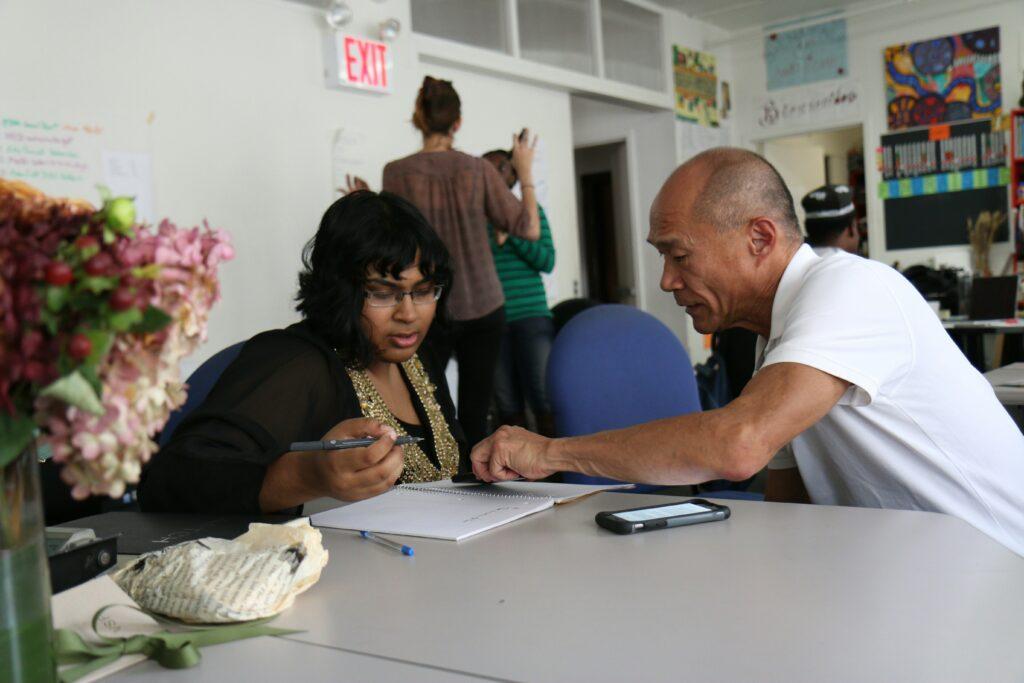What To Do When You’re Over-Mentored And Under-Sponsored

Most women don’t know the difference between mentorship and sponsorship.
Mentors guide, while sponsors actively advocate on your behalf. This distinction matters, especially when you’re flooded with mentors but starved for sponsorship. There might be plenty of people willing to teach and coach you, but not many willing to leverage their connections on your behalf.
Research shows that sponsorship, not merely mentoring, is what fuels meaningful career progress.
Mentors Are Helpful, But Sponsorship Moves Your Career Forward
A recent study found that mentors do offer positive benefits, like support, skill-building, job satisfaction, and reduced burnout. But mentoring alone doesn’t guarantee visibility or opportunity. While mentors help you grow, they don’t typically push your name for high-stakes opportunities.
However, research shows that having a sponsor significantly affects your career growth. A survey of nearly 500 workers revealed that 60% said sponsorship had been important to their career success, 61% credited sponsorship with increasing their visibility, 54% reported it helped them attain leadership positions, and 46% tied it directly to promotions.
With so many mentors and so few sponsors, learning flourishes while promotion chances stall. Mentors improve readiness but sponsors open doors, introducing you to decision-makers, advocating on your behalf in closed meetings, and taking reputational risk to support you. Without sponsorship, high performers can remain unseen and underchallenged.

Photo by Monica Melton on Unsplash
Spot the Signs You’re Over-Mentored And Under-Sponsored
It’s easy to assume mentorship is enough, especially when you’re getting regular feedback, advice, and encouragement. But if you’re doing strong work and not seeing upward mobility, you may be caught in the over-mentored trap.
Common signs include being asked to “sit in” rather than lead, being passed over for stretch assignments, or being invited to learning opportunities but not decision-making tables. You may find yourself stuck in an endless cycle of preparing and perfecting, while others are being promoted. If your mentors rarely mention your name in rooms you’re not in, you may be receiving valuable development but little advancement.
This disconnect isn’t about working harder; it’s about shifting strategy. Mentorship helps you sharpen your tools. Sponsorship helps you use them in bigger, riskier, and more visible arenas. Once you spot the imbalance, you can begin to correct it and position yourself not just for growth, but for opportunity.
Transitioning From Being Over-Mentored To Well-Sponsored
Here’s how you can shift the balance from receiving too much advice and guidance to gaining needed advocacy and opportunities:
1. Map your support network
Make a list of who’s mentoring you and who might be sponsoring, or could sponsor, you. Identify real sponsors, people with influence who can advocate for stretch roles, promotions, or key assignments.
2. Clarify and communicate your goals
To attract sponsorship, make your ambitions clear and ensure your performance is noted. Sponsorship thrives when you’re able to deliver results that sponsors feel confident promoting.
3. Diversify sponsors
Don’t rely on one sponsor; aim to build a wide network across functions or outside your organization. This boosts exposure and broadens access to opportunities.
4. Demonstrate readiness and follow-through
Treat sponsorship as mutual and reciprocal. Deliver early wins, document impact, and express gratitude. Sponsors are more likely to back someone who shows both potential and reliability.
5. Proactively initiate
Many sponsorship relationships begin with a proactive conversation. Ask whether someone would consider sponsoring, not just mentoring, you as you pursue specific opportunities.
Why This Matters For Your Career

Photo by Frank Rolando Romero on Unsplash
Mentoring builds capacity, but sponsorship creates opportunity. Without enough sponsorship, career momentum can stall. Shifting from an advice-rich but advocacy-poor network to intentional, reciprocal sponsorship moves your career trajectory forward.






